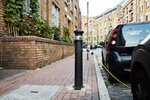Power Raid
We Exist To Win Premierships
FFS…. Let’s say you have a fully charged EV sitting in the drive way.
You are on a TOU tariff paying 50c during peak…. You can pay that or use you car battery for a few hours for cooking etc using 10% of the battery until the peak rates are over. Hmmmm to pay or not to pay!!!
Is this concept to hard for you to understand?
For a start why is energy $0.50kwh?
Second free energy from the grid will cost you $0.40kwh to store and release. Energy should not cost $0.40kwh
This along with high CO2 is why I believe there are technologies that will replace batteries in the medium term and see batteries as a storage power illogical (grid stability makes great sense)









